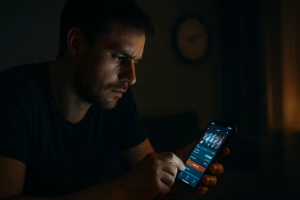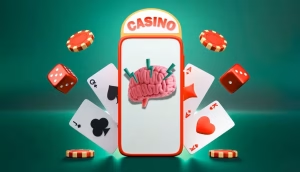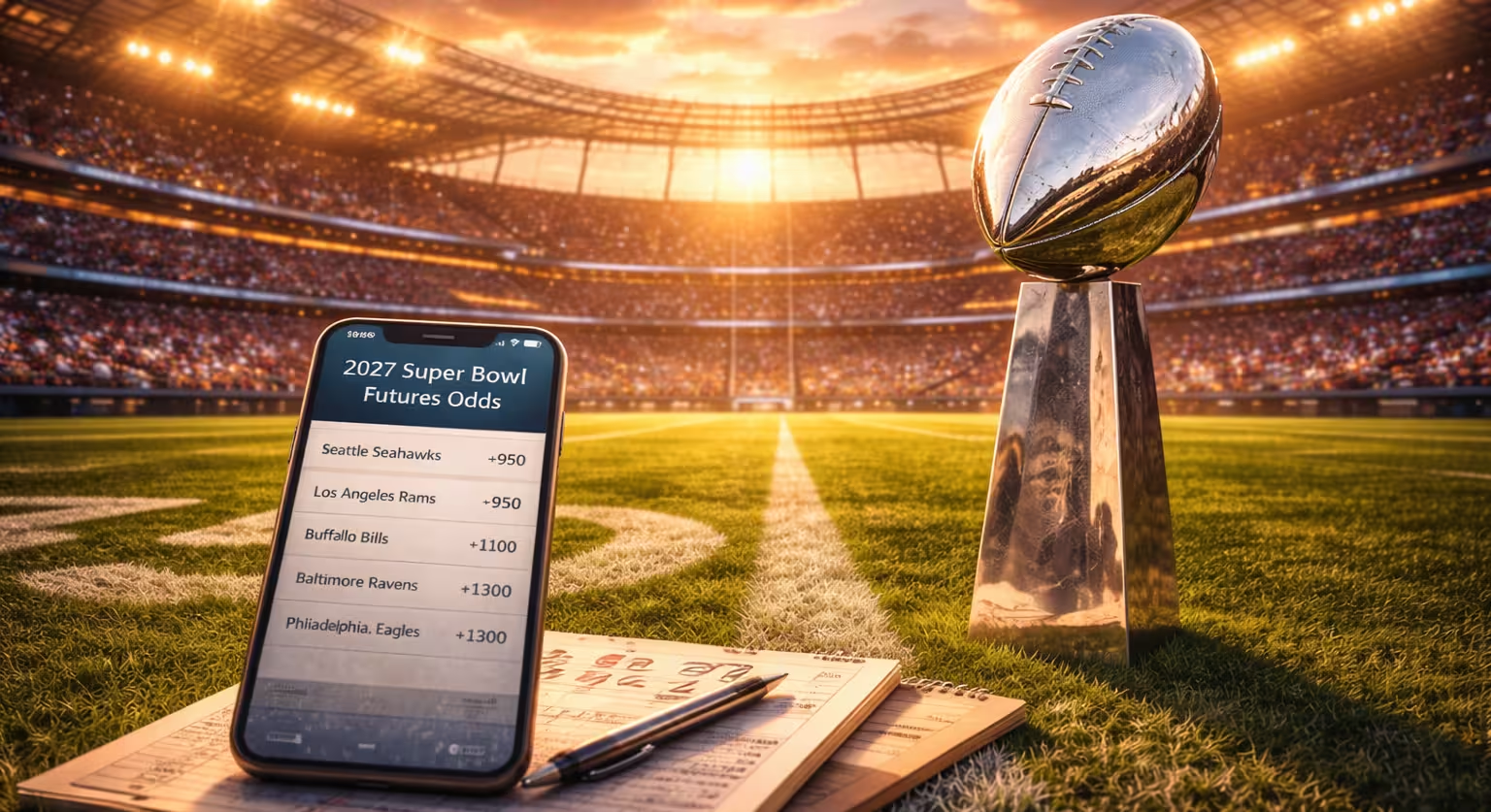How Gambling Addiction Starts: Early Warning Signs
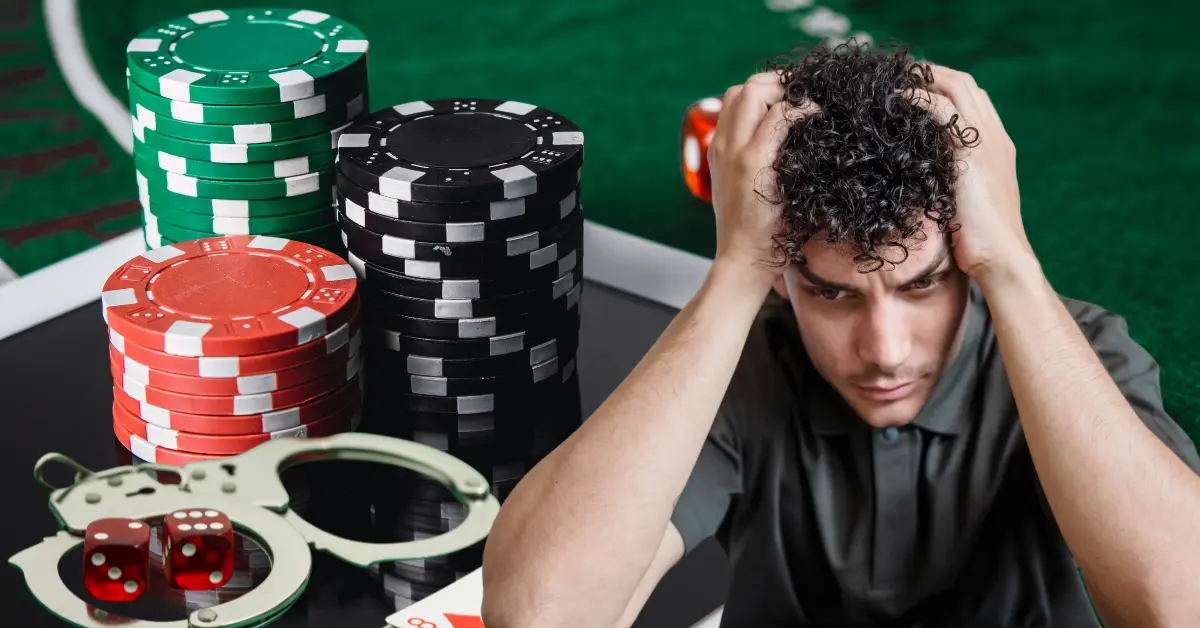
People don’t wake up one morning and think, “Hmm…maybe today is the day I’ll get started on my plan to develop a gambling problem!” It doesn’t happen in an instant. No, it usually begins with small decisions here and there. A few casual bets on the weekend. A harmless habit. And slowly but surely, it turns into behavior that takes up more of your time, energy, and money.
Gambling addiction doesn’t always look like what you’d expect it to, either. You don’t have to be broke, unhoused, and living in a tent outside of a casino, or constantly making outrageous bets to have a serious issue. It can be way more subtle than that, like a coping tool or just something to defeat boredom, stress, or to attempt to lift your spirits after a bad day.
That’s why it’s so important to know what the early warning signs are! Our guide will tell you how gambling addiction can slowly build up, what behaviors to watch out for, and where to get help before it goes too far. If you’re worried about yourself or someone close to you, the earlier you catch it? The easier it can be to take back control.
What Is Gambling Addiction?
Gambling addiction, also known as compulsive or disordered gambling, is when someone keeps gambling despite the harm that it’s doing. It’s not always a frequency thing, either.. Some gamble daily without ever developing a problem. Others only gamble once in a while, but when they do? They can’t stop once they start, or spin out after losing.
The biggest difference is with control. People who gamble socially can take it or leave it, but when someone’s gambling becomes compulsive, it starts to interfere with how they think, act, and function day to day. They may feel like they are unable to stop, even if and when they want to. They’ll take risks that they normally wouldn’t. And they most likely will hide it from the people around them.
According to the National Council on Problem Gambling, around 2 million adults in the U.S. are estimated to have a serious gambling disorder. Another 4 to 6 million fall into the “problem gambling” range, which is when the behavior isn’t fully compulsive, but it’s starting to create stress or harm.
Gambling addiction can show up in all different forms, like high-stakes poker, it’s sports betting, slot apps, crypto casinos, or fantasy sports. The format doesn’t matter nearly as much as the pattern, and that’s when gambling becomes hard to control and starts taking way more than it gives.
How Gambling Addiction Starts
How does it start? Harmlessly, in most cases. Gambling is usually a way to have fun or get a break from daily life. It’s a way to pass the time, kill some boredom, or inject a little excitement into a slow weekend. And even though it starts out as harmless, the behavior can quickly change with little to no warning.
- Sometimes the hook is an emotional one. If a person is going through a rough patch, like stress from work, relationship strain, or depression, they might gamble as a form of escapism. The distraction feels good at first. It gives you a semblance of control, even though that’s an illusion.
- As people start to bet more, their brain begins to change and will associate gambling with relief or pleasure. Dopamine, the chemical that’s behind reward and motivation, gets released during wins and almost-wins. The rush makes the brain want more, even if you’re losing.
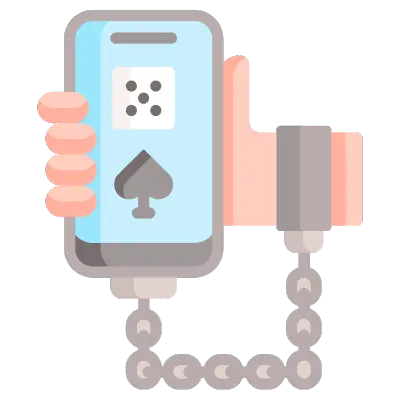
- The trouble really comes when escalation happens. Small bets won’t feel exciting anymore, so you increase them. Wins feel like proof that you’re “good” at it. Losses then trigger the need to keep going until you’re back at even. This cycle is called “chasing losses,” and it’s one of the most common signs that things are veering into dangerous territory.
Online gambling has made it worse for problem gamblers because now it’s accessible 24/7. There’s no dress code, no driving to a casino, and you can play anywhere and anytime. Mobile gambling sites are built to be fast, seamless, and rewarding. And because it’s happening on your phone, it makes it easier to hide. What might’ve once been a weekend activity turns into something that’s done in secret, and it’s available day or night.
Early Warning Signs of Gambling Addiction
If you can recognize the early warning signs, you might be able to stop a problem from snowballing into something that is harder or impossible to manage. If you notice any of the following signs in yourself or someone you love, you need to pay attention:
- Thinking about gambling constantly: You’re planning your next bet, replaying past wins or losses, or watching the clock until you’re able to gamble again.
- Betting more to feel the same excitement: The excitement doesn’t come unless you up the stakes or gamble more.
- Hiding gambling from others: You’re secretive about how much time or money you’re spending, or you lie to avoid facing judgment.
- Lying about losses or time spent: Downplaying how long you’ve been gambling or how much you’ve lost is a huge red flag.
- Feeling on edge when not gambling: Irritability, restlessness, or even anxiety kicks in if you can’t gamble.
- Using gambling to escape: You turn to gambling after a tough day, after arguments, or when you’re feeling blue.
- Chasing losses: After losing money, you keep betting in an attempt to win it back, even if that means you spend more than you planned to.
- Neglecting other parts of life: Hobbies, work, or time with your family starts to slip, and gambling becomes your number one priority.
Risk Factors That Increase the Chances of Addiction
Gambling addiction can affect anyone, but some people are more vulnerable to it than others are. Below are the factors that increase the likelihood:
- Family history of addiction: If addiction runs in the family (gambling, alcohol, or other substances), the risk of compulsive behavior is higher.
- Mental health issues: People who are living with anxiety, depression, ADHD, or PTSD are more likely to use gambling as a coping tool.
- Age: Young adults are especially susceptible. The part of the brain that’s responsible for decision-making isn’t fully developed, and the instant gratification of gambling is dangerous.
- Impulsive personality traits: People who act quickly without thinking about consequences are at greater risk.
- Easy access to gambling: Online gambling sites, mobile apps, and social casinos make it easier to start and harder to stop.
- Social pressure: If gambling is normalized within a friend group, workplace, or family, it’s easier to fall into the same habits without realizing the dangers.
When It’s Time to Get Help
We need to make it clear that not everyone who gambles has a problem! But if it’s causing you stress, you lie about it, or feel regret after you gamble, it’s worth checking in with yourself or encouraging someone else to do the same!
If you’re concerned, ask yourself some of the questions below to better gauge your situation:
- Have I tried to stop gambling but couldn’t?
- Am I spending money that I can’t afford to lose?
- Do I lie about how much I gamble?
- Have I skipped work, school, or family events so that I could gamble?
- Do I feel anxious or angry when I’m not gambling?
- Am I chasing losses in the hopes of winning back what I’ve lost?
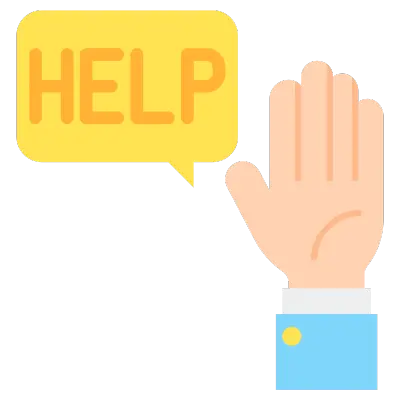
Even answering yes to a few of these can be a sign that your gambling is no longer under control. The sooner you say something, whether it’s to a friend, a therapist, or a helpline, the better chance you have of turning things around.
Asking for help isn’t something to feel shame about—it shows that you are holding yourself accountable and are ready to make a change.
Resources for Help
If you or someone you know is struggling with gambling, there is confidential support available.
- Call the National Problem Gambling Helpline: 1-800-GAMBLER (available 24/7 across the U.S.).
- Therapy and counseling: Cognitive Behavioral Therapy (CBT) has been shown to be effective for gambling addiction, and there are therapists who specialize in behavioral addictions.
- Support groups: Groups like Gamblers Anonymous (GA) follow a 12-step model and provide a community of people who are dealing with similar problems.
Digital tools
- Self-exclusion programs (you can ban yourself from gambling sites or casinos)
- Apps that block gambling content or track spending
- Online therapy platforms that support addiction recovery
Final Thoughts
Gambling problems won’t appear overnight—they’ll come in smaller increments, build slowly, and be accompanied by rationalizations and excuses. What started out as entertainment can turn into something that causes you to disappear from your life due to stress, secrecy, and regret.
If gambling is starting to feel like something that you can’t quit, you need to take it seriously. Recognizing the early signs is the opposite of failing. Self-awareness is the biggest first step you can take in order to make different choices.
It’s possible to interrupt the cycle by getting support and making the changes that will protect your mental health, your relationships, and your future. If you’re noticing the signs in yourself or someone who’s close to you, it takes strength and shows courage when you make a decision to act.
If you’re ready to talk, you can reach out to the National Problem Gambling Helpline at 1-800-GAMBLER, and if you want to learn more about how to control your play, check out our Responsible Gambling page.
You don’t have to do this alone, and you may feel like you’re stuck, but you can break free from gambling addiction.

Alyssa contributes sportsbook/online casino reviews, but she also stays on top of any industry news, precisely that of the sports betting market. She’s been an avid sports bettor for many years and has experienced success in growing her bankroll by striking when the iron was hot. In particular, she loves betting on football and basketball at the professional and college levels.

